Piper Alpha: Firefighter recalls horror of oil rig disaster
- Published
Some of Brian Krause's Piper Alpha images have not been seen before
"In a few hours, three quarters was gone and disappeared. It's kind of like to some degree the towers collapsing on 9/11.
"Such magnificent giant structures that you can't imagine coming down. Within a matter of a few hours, they're gone."
In 1988, Brian Krause was a 32-year-old with a love of racing cars. He also worked for the legendary oil well firefighter Paul "Red" Adair.
He was at a racing event in US when word came through of a huge explosion.
It was on board Occidental's Piper Alpha platform in the North Sea.
'Absolute devastation'
It would leave 167 workers dead in what was, and still remains, the world's worst offshore disaster.
The Red Adair team was in Scotland the next day.
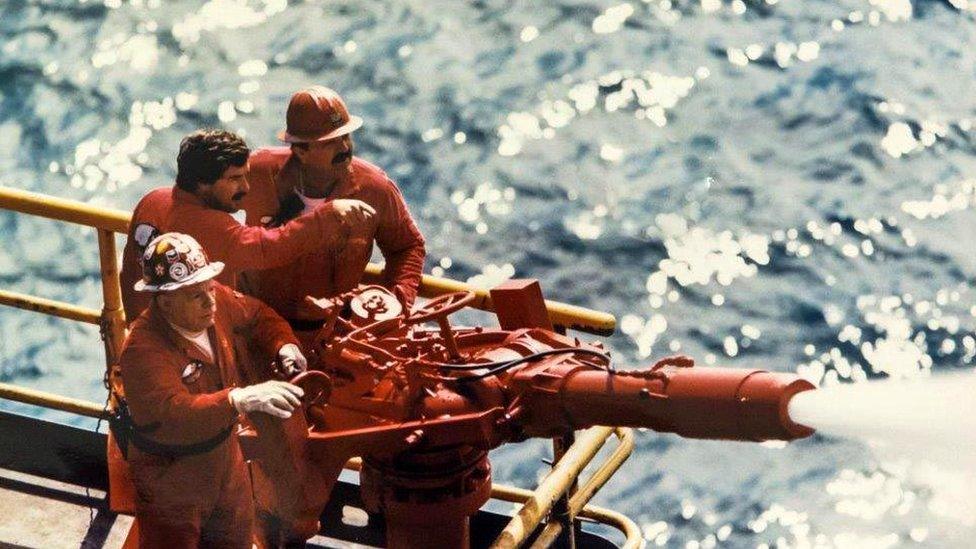
Red Adair (bottom), Brian Krause (middle) and Raymond Henry helped fight the flames
Mr Krause told BBC Radio 4's 'Oil: A Crude History of Britain': "We were on a helicopter flying over what was remaining of the platform. What was left was leaning and on fire.
"There was myself, my colleague Raymond Henry, Red Adair and Leon Daniels, who was the president of Occidental.
"We flew over it, making a number of passes, and I'll never forget it, Leon said: 'This is horrible, what are you guys going to do?'
"And Red said: 'We can't do anything. There's nothing left. It's too dangerous to get up there'.
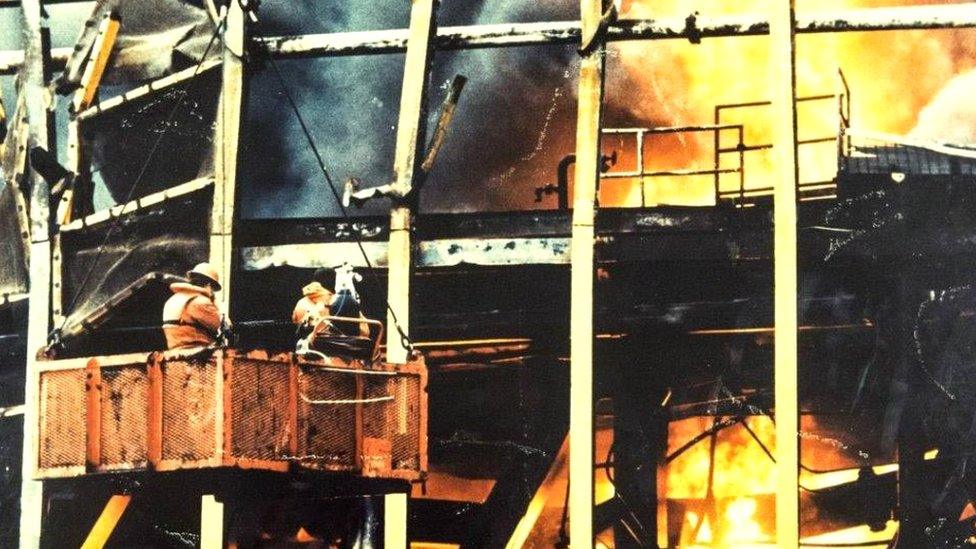
The operation took several weeks
"The look on Leon's face was absolute devastation. Because now you had the best company and the best man in the world coming to fix your problem and now he says he can't do it."
In the hours and days following the explosion the search continued for survivors.
The fact that people could still be found alive on the burning platform occupied Mr Krause's mind.
'Means so much'
"We know there's 167 people missing. We don't know if there's anybody still on there that's alive. Or that's really hurt or there are remains.
"That was always a big deal to me. Always try to find, even if it's a body part of somebody, it means so much to that family. I said 'at least just let us up on there and let us see what we can find as far as people'."
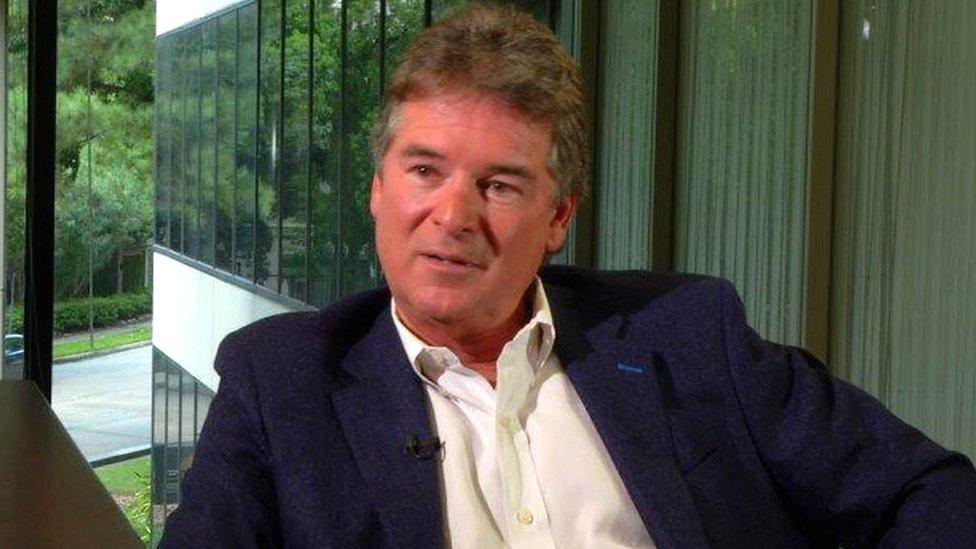
Brian Krause said they did not know what they would find
To this day Mr Krause believes that Red Adair's assertion that "we can't do anything" was meant as a challenge to his young protégées.
By pure chance the firefighting rig Tharos was sitting next to Piper Alpha on the night it exploded.
It was pumping 40,000 gallons of water every minute onto the burning platform.
'Eerily quiet'
But even from half-a-mile away the paint on the Tharos was melting.
"The captain of the Tharos was very leery about getting up there close again, understandably so. But our only way of getting up there was to have him pull up next to it, put Raymond and I in a basket, swing us out over the water and put us on.
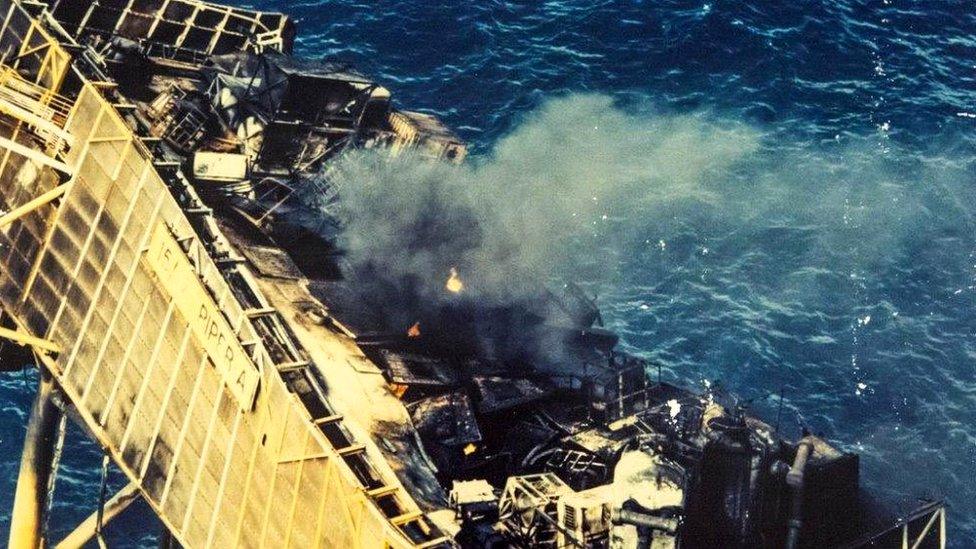
Red Adair never actually got onto the platform
"It was eerily quiet for something that big. A lot of screeching and twisting of metal still going on which made you wonder, when is it going over? And literarily the only thing that kept it standing up was the 36 wells themselves. The structure was pretty much destroyed."
Mr Krause said it took him and his colleague less than an hour after getting on board to realise there was a way to tackle the blazing wells.
It would take 36 days to put out the final fire.
"That was the finest feeling of my life. I remember looking up and throwing my hat over to the Tharos. Whether it was going to work or not was yet to be determined. But once they started working on it, it did work and it killed the well."
'Most difficult job'
The name of Red Adair is synonymous with fighting the inferno on Piper Alpha.
But Mr Krause has revealed the legendary firefighter never actually stepped foot on the platform, much to his frustration.
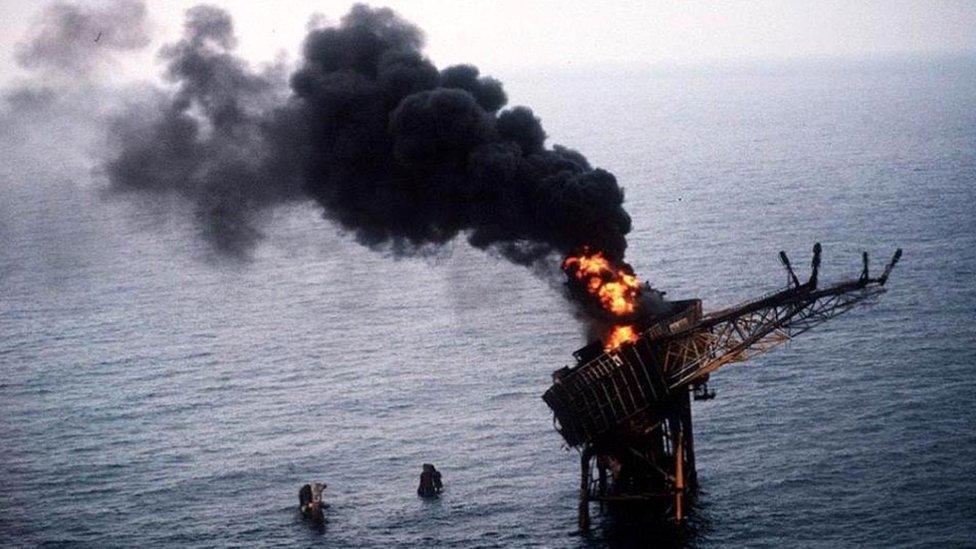
Piper Alpha remains the world's worst offshore disaster
"Even to the day he died he said that was the most difficult job of his career. He was 70 years old and it was just too dangerous over there.
"He stayed on the Tharos in radio contact. He was constantly driving us insane because he was always on the radio telling us how bad it was."
Red Adair died in 2004 aged 89, external.
Mr Krause now works in Houston for a major energy insurance company.
'Can't get any worse'
For many years after Piper Alpha he received letters from the families of those who died thanking him for helping quell the fire that allowed the recovery of the bodies.
He says his time tacking what initially looked like the impossible changed his life.
"It gave me more confidence when I left, after that 36 days, that no matter what was thrown at me in life, I could handle it.
"I'd questioned to some degree that I could to that point, but after that I knew that it can't get any worse than this."